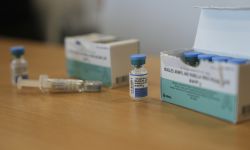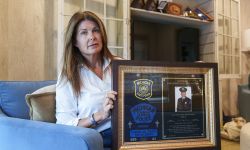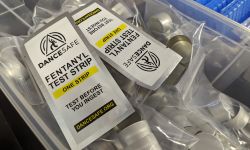Inside Michigan hospitals, a ‘crushingly hard’ week in coronavirus fight
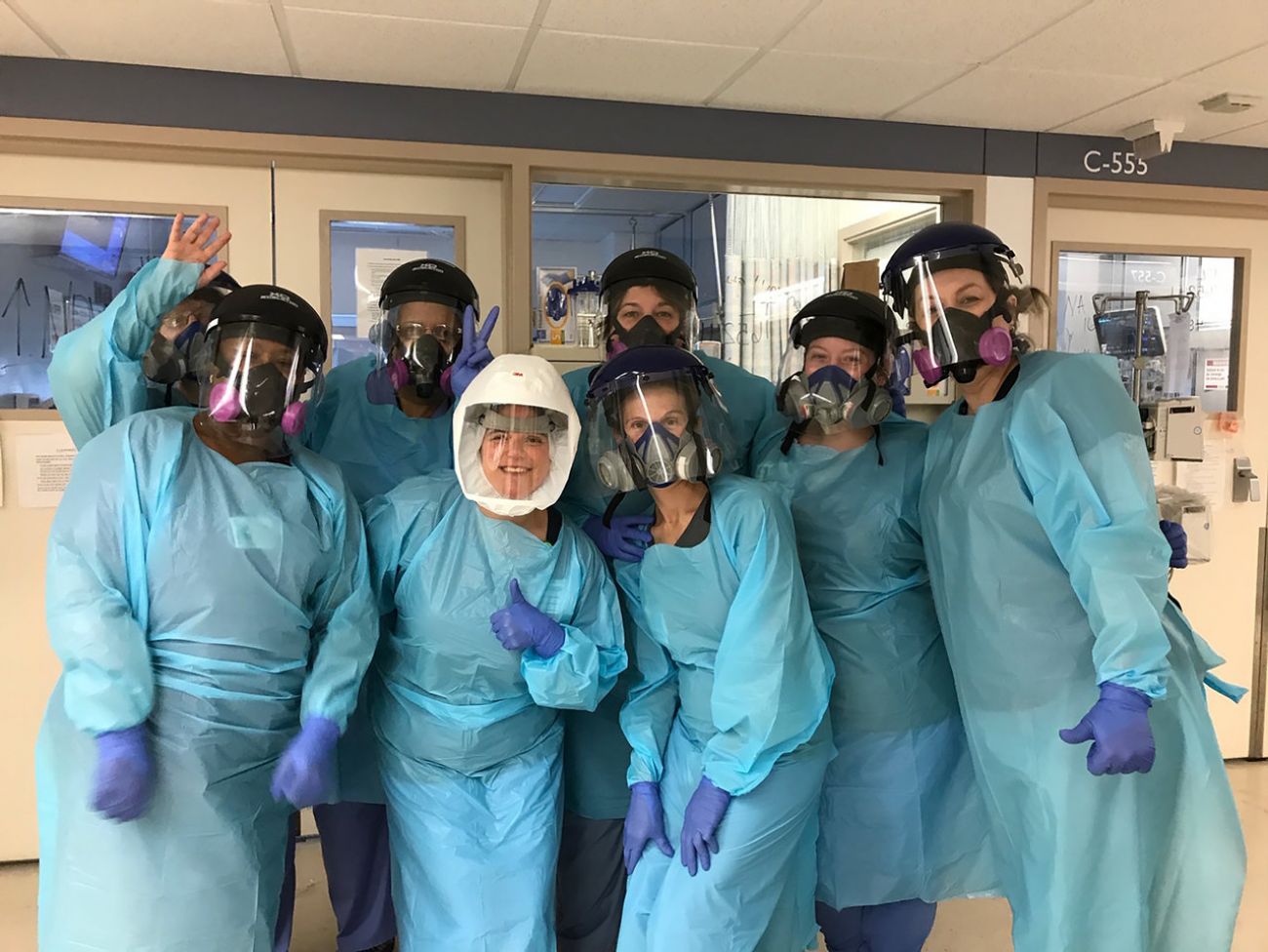
In the worst week yet in the coronavirus pandemic for southeastern Michigan, when the death toll climbed to 540 statewide and 14,225 were sickened by the virus, health care workers shared their stories of courage, fear and despair.
They talked about the anguish of going to work each day not knowing whether the patients they cared for the day before survived the night.
They hold the hands of the sick, comforting them as they take their final breaths without a loved one nearby, and then have to break the news to their families over the phone or via video chat that COVID-19 took their husbands, wives, sisters, brothers.
- The latest: Michigan coronavirus map, locations, updated COVID-19 news
- What Michigan’s coronavirus school closure means for you
- What Michigan’s coronavirus stay-at-home order means for residents
- What jobs are exempt from Michigan coronavirus lockdown? You may be surprised.
"There's a growing number of them who aren't going to make it and they are absolutely alone," said Maureen Biddinger-Grisius, a registered nurse at Beaumont Hospital in Farmington Hills, who, in an interview with MSNBC's Stephanie Ruhle, shared a painful reality of the visitor ban that hospitals have instituted to curb the spread of the virus.
"It's heartbreaking as a nurse to know that you are that person's everything and, sometimes, in their last moments," Biddinger-Grisius said, speaking somberly with the anxiety of recent days on her face. "The weight of trying to fill the shoes of the people who can't be there is really heavy."
Stories from the front
Bridge Magazine and the Detroit Free Press are teaming up to report on Michigan hospitals during the coronavirus pandemic. We will be sharing accounts of the challenges doctors, nurses and other hospital personnel face as they work to treat patients and save lives.
If you work in a Michigan hospital, we would love to hear from you. You can contact Robin Erb rerb@bridgemi.com at Bridge or Kristen Jordan Shamus kshamus@freepress.com at the Free Press.
Then, they go home to their own families, terrified they're bringing home a contagion that can't been seen and that doesn't make itself known until it's too late and they're infected — and so are the people they love.
One nurse — Lori Key at St. Mary Mercy Livonia — found solace through the heartache in song, singing "Amazing Grace" to her patients.
Others found hope in seeing a whiteboard that keeps a running total of COVID-19 patients who've come off mechanical ventilators and how many who've been discharged from the hospital to recover at home.
They were buoyed by seeing patients who were very sick, who had all the odds against them getting better.
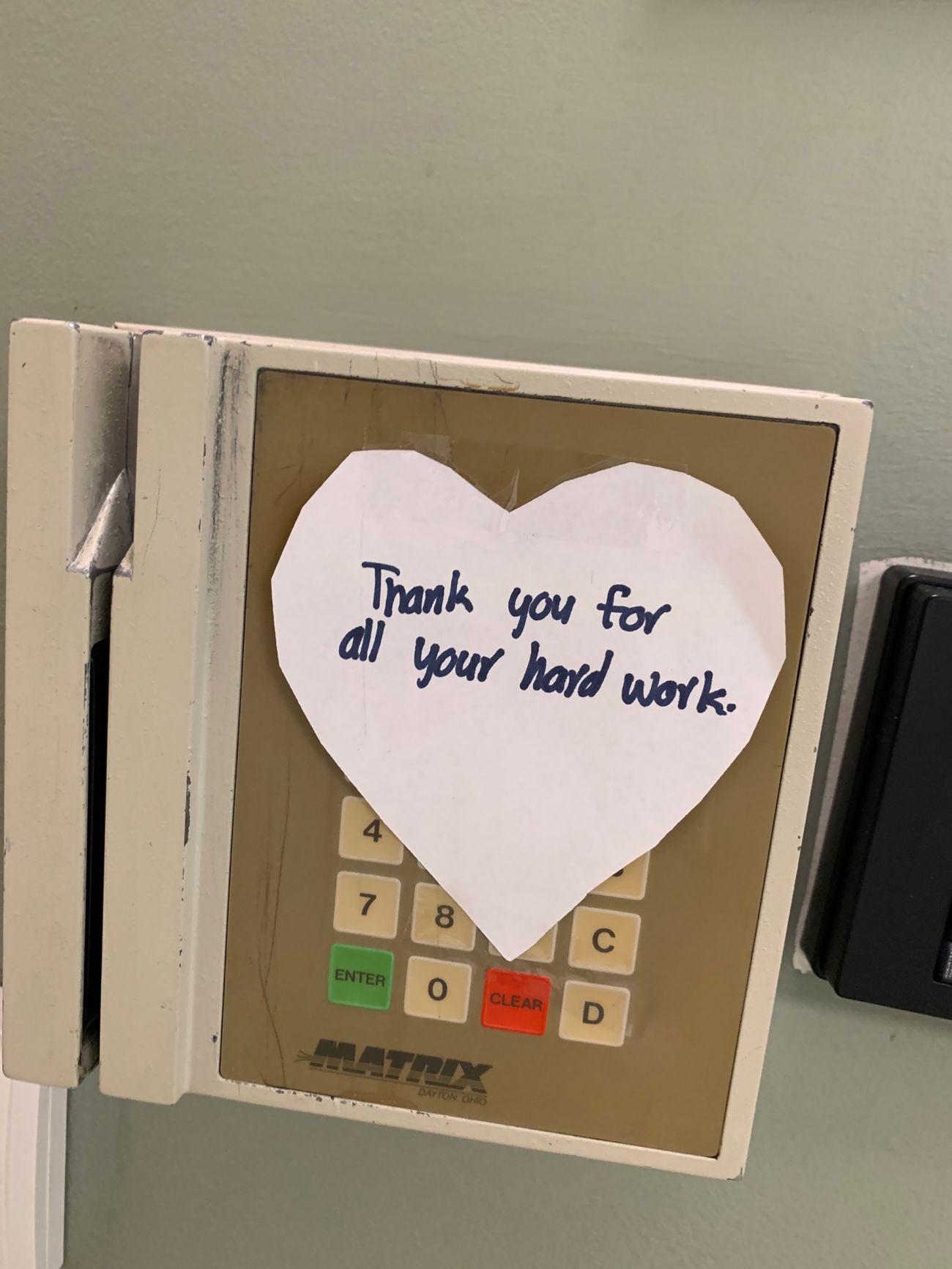
Some health care workers say they feel paralyzed by fear about the shortage of personal protective equipment like masks, gloves and gowns, and don't know how they can continue to work without getting sick, too.
"You walk in every day because you have a job to do," said Jeff Morawski, a cardiac cath lab nurse at McLaren Macomb whose first shift in the intensive care unit was Friday night. "You don't know what you're walking into, and you don't know if you'll be able to walk away without being sick, yourself."
Dr. Rana Awdish, a critical care physician and medical director of care experience for Henry Ford Health System, said she and many of her co-workers have taken to rituals that help them manage the stress of that worry.
"I have switched to only wearing scrubs," said Awdish, who wrote "In Shock," a memoir based on her own critical illness that calls for more empathy in medicine. "I have only one pair of shoes that I wear at the hospital."
She enters her home through a side entrance by the washing machine, where she strips down at the end of each shift.
"I put my clothes right in the laundry and I strip everything. I have hand sanitizer and a sink there," said Awdish, who lives with her husband, Randy, and their son, Walter. "So, I wash my hands. I walk straight to the shower and I take a shower and put on clean clothes.
"Even doing that doesn't feel sufficient. But it's all that I'm able to sacrifice right now. I'm not ready to live in a separate building from my family. I feel like I've given up enough to this virus and I'm just not willing to give up seeing my family, too."
For many health care workers, there is no such thing as leaving work at work, even when 8- and 10-year-old girls and packing boxes from a recent move await.
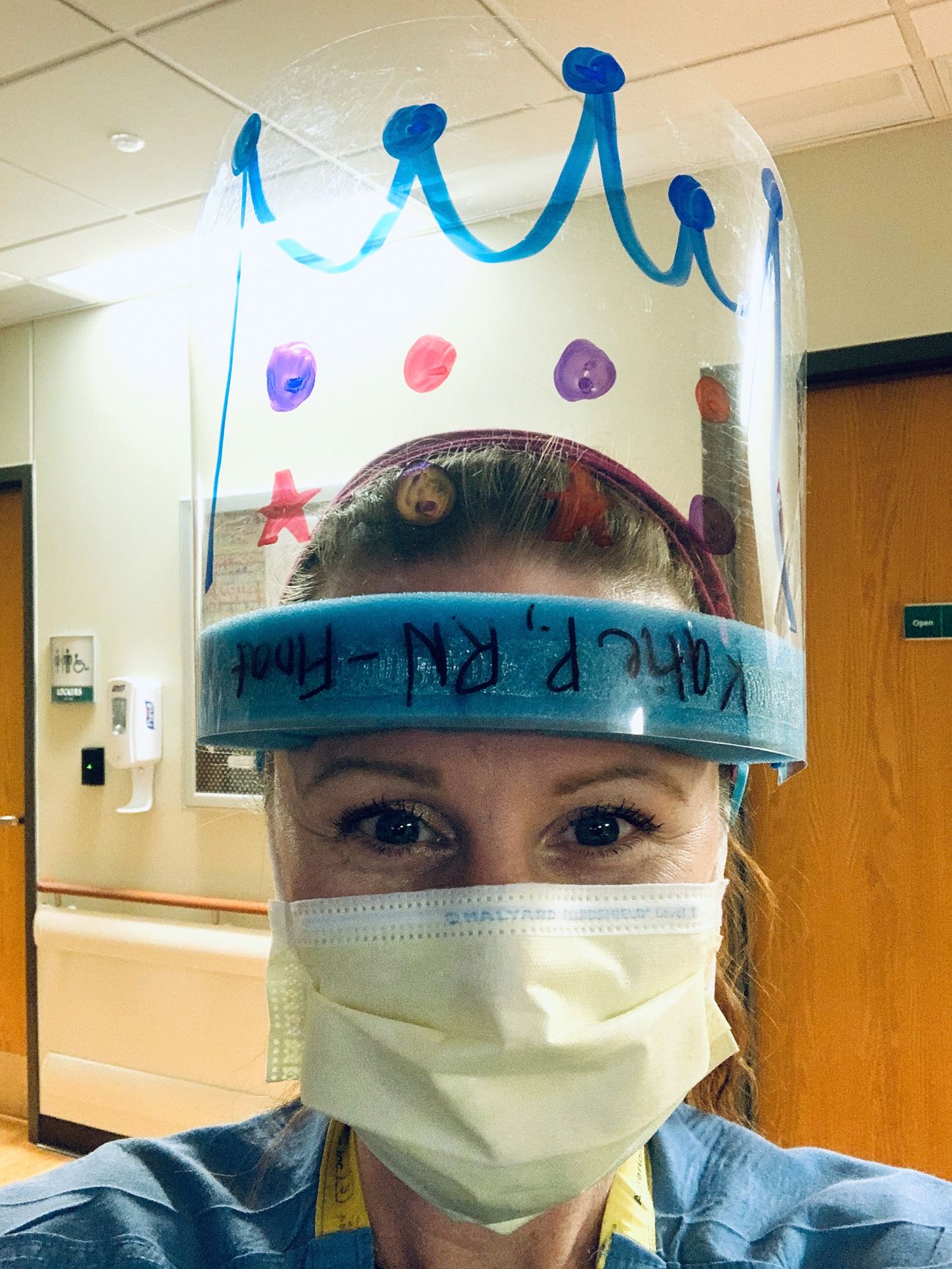
Sparrow Hospital nurse Katie Pontifex said some of her colleagues are sleeping in campers at home, worried they could unknowingly bring the virus home to infect their families.
At the end of her shift, Pontifex, the 37-year-old mother of two girls, turns over her scrubs to the hospital laundry. She bags her shoes, puts any extra items in a pillowcase and ties it shut. She changes into yoga pants and flip-flops and climbs into her Kia.
At home, she takes no chances. She disinfects the steering wheel and gear shift and seat, then wipes clean the exterior door handle.
Leaving her flip-flops and work shoes in the garage, Pontifex strips down and throws her clothes and the pillowcase in the washer before walking straight to her shower.
“My husband literally follows me around with a can of Lysol,” she said.
It makes the girls laugh, she said, but really “we can’t be too careful.”
Still, some health care workers are getting sick.
And at least three nurses from metro Detroit hospitals — Lisa Ewald, Divinia (Debbie) Accad, and James House — have died in the last week, succumbing to the very same disease that had afflicted their patients.
Coping with unusual circumstances
For Awdish and others she works with at Henry Ford, coping through the early weeks of this outbreak has been hard, especially as co-workers are now also contracting the disease and dying.
"Pretty early on, you know, even before we started seeing cases here in Detroit, we saw what was coming," she said. "And what we saw in China and in Italy started really creating anxiety in our critical care group.
"As it got closer, and eventually when we brought in our first case, and we started realizing the risk to ourselves and our colleagues, it got kind of dark. And we really sat together and talked about the mortality risk for health care providers.
"I have friends who are single moms, and they wanted to be sure that, you know, our immediate group who looks out for each other knew what the plan would be for their kids."
They talked about what kind of care they'd like if they ended up infected with coronavirus and admitted to the intensive care unit, and what kind of treatments they'd prefer to have.
Some of them told one another they'd rather die at home than come to the hospital and put their co-workers through the trauma of having to care for them.
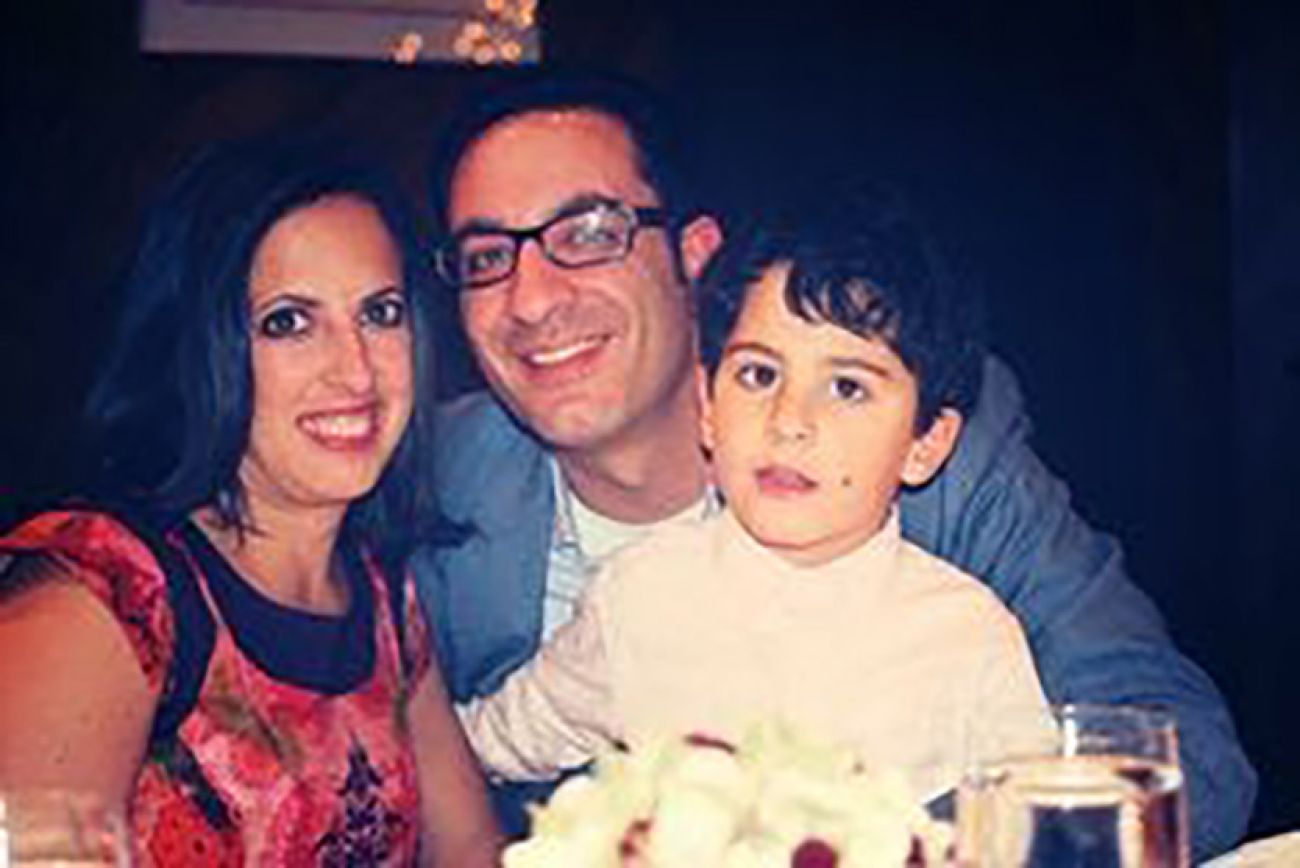
It's a very real feeling of "'I don't want my people to have to care for me because I know how traumatic that will be,' " Awdish said. " 'So if I get sick, I'm just staying home. I'm not going to put you guys through that.' I've heard that a lot.
"No one digs all the way into every feeling they're having right now. You can't because you're just powering through. So people will say things like that and you'll realize how much they're hurting.
"It's a kind of anticipatory grief, you know? You're projecting into the future how bad this will hurt others and you're trying to protect them, which is, of course, a form of love."
From these conversations among her co-workers, Awdish came to realize they needed more support to get through this unprecedented challenge that the pandemic was about to bring upon them all.
"I actually developed a role for myself with the hospital support, where I would do rounds on each of the teams who are caring for COVID patients each day," Awdish said. "Not rounds on the patients, but rounds on the nurses and physicians, and just go to them and, you know, ask the open-ended questions of what concerns you most today, you know?
"Do you have what you need to take care of yourself? What are you worried about? Who's having the hardest time on your team? How can we support you? Because I think we all see what's coming on the back end of this."
After the surge of coronavirus patients passes, Awdish anticipates there'll be a wave of post-traumatic stress disorder among hospital workers as they deal with the many layers of grief and moral dilemmas tied to doing their jobs in a crisis.
They'll carry the burdens of being branded heroes, yet there are so many they'll be unable to save in this pandemic, she said. They'll carry the grief of families who can't be beside their loved ones as they die.
"It's one of the tragedies of this pandemic with the contagion risk being so high that we aren't able to support people with family visitation the way we normally would have," Awdish said.
"What's hardest right now is the isolation and disconnect for the families who've dropped their loved one off in the ER, who was walking and talking but feeling like they had a viral illness and a fever. And then they deteriorate over a number of days.
"And then they're getting a call that their loved one is dying. And you know, when you've been at the bedside of someone who's critically ill, you see the deterioration. Even if you have no medical background, in your bones, you know when someone's dying. And to be deprived of that like visceral experience of knowing in your soul that they are leaving. I worry that it's too abstract."
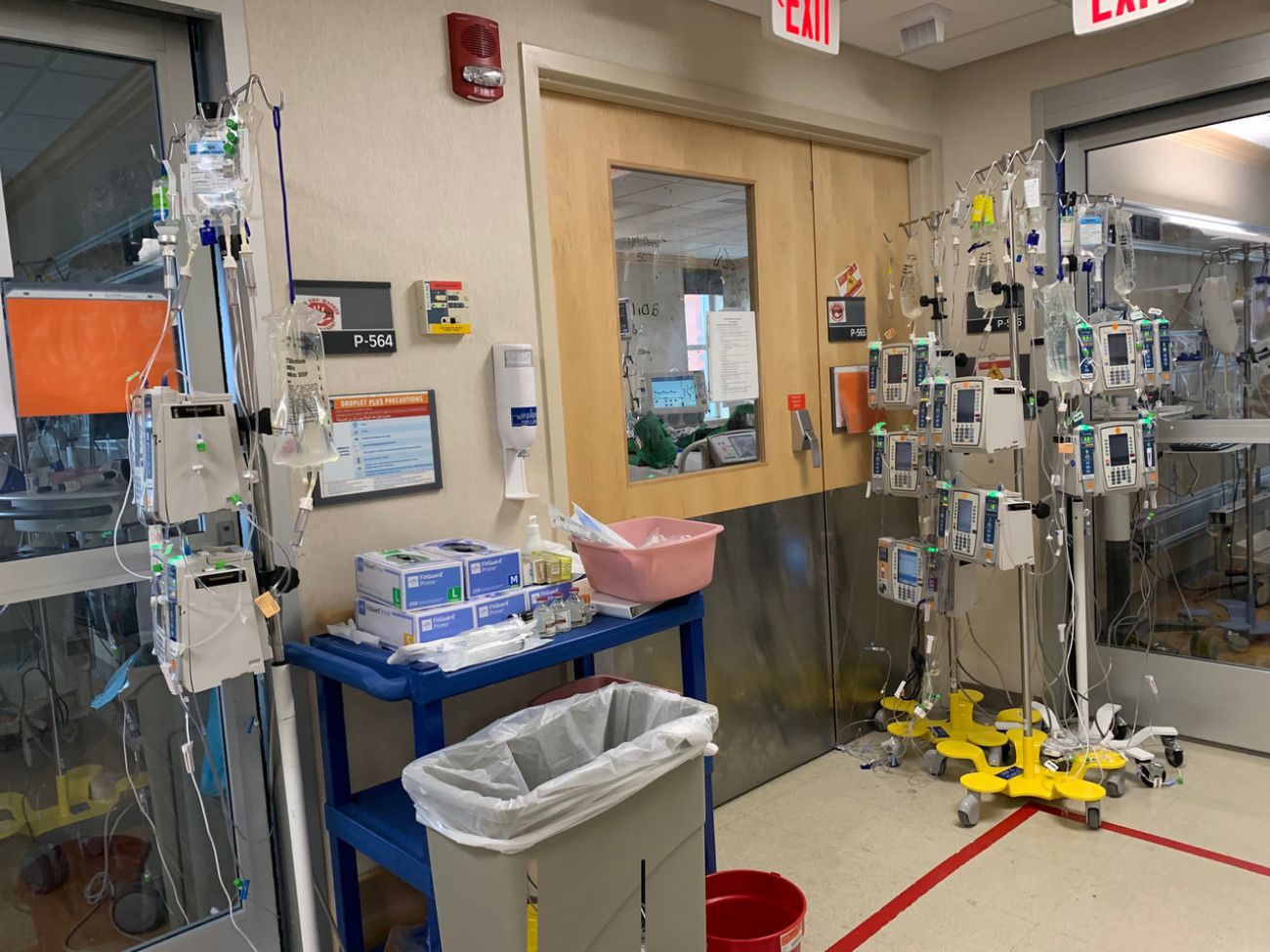
So Henry Ford is trying to bridge that disconnect with videoconferencing in intensive-care units so the families of patients can see how their loved ones are doing. But, Awdish said, not everyone wants to see.
"Sometimes the answer is no because it's crushingly hard," Awdish said. "And sometimes the answer is yes, one day and no the next day because they've seen enough and now they know, and they can have a different conversation."
When doctors have to deliver the news that a person has died, the staff tries to deliver the news over a videoconference so families can see the physician's face, and the anguish the doctor feels, too.
"To see the grief on a physician's face who's explaining to you a clinical deterioration or a lack of ability to survive this, it means something, and I think it's healing," Awdish said.
"These families won't be able to have funerals. So, there will be a lack of closure. I think that's why we feel obligated to give them some closure."
When patients die, the staff grieves, too, Awdish said.
"Everyone's doing their best, but grief that comes with not being able to bring people back from this is something that I think doctors are going to struggle with for a long time."
At Sparrow, Pontifex said, “There’s an anxiety just in the unknown."
It has deepened the camaraderie. Humor erupts at the most unexpected times.
Pontifex grabbed dry-erase markers Thursday, scribbling the picture of a crown on the curved plastic of the face shield she wears over her N95 mask.
After each visit to each room, the mask must be disinfected with a wipe, and the crown is erased.
Each time she wiped hers, Pontifex drew another silly crown, another funny face — including one meant as an homage to a character on the Netflix docuseries, "Tiger King" — the tension relaxed ever-so-slightly, she said.
“Nurses always have had some dark, twisted humor. You have to release the stress,” she said. It reinforces that “we always have each other’s back.”
Working with COVID patients sharpens all these things, she said.
Consider the protocol before entering a COVID patient’s room. To reduce what is usually the day-long in-and-out traffic, staff “cluster care” — to take vitals, dispense medications and deliver meals in a single visit.
Preparing means extra layers of protection and extraordinary coordination.
And always before entering a room, a nurse alerts a second so that if she or he needs something, they can tap on the door window to beckon for help.
It’s about more than reducing foot traffic that could transfer the deadly virus, Pontifex said.
“I know if one of Clare’s patients goes down, I can jump in to take care of her other patients,” she said. “Things can go bad fast.”
Looking for signs of hope
Awdish said she's tried to find stories of hope to bring her Henry Ford co-workers up, to give them a reason to keep coming back to work each day knowing their work matters.
"In collecting these stories, I've been amazed at the people who objectively ... I wouldn't have thought would have survived. I'm thinking of a patient who had actually had a transplant, who had every risk factor with hypertension, heart disease and obesity — all the things that we had heard in the news were very, very high risk of mortality with COVID.
"And this person got extubated, and did well and went to the floor and was just on a little bit of nasal canula oxygen. And, you know, there's so much value in sharing that because it's so easy with the scale of disease that we're seeing to feel defeated, and like nothing matters, and it's the opposite. ... I've been blown away by this survival story."
But it could be awhile, Awdish said, before we start to hear stories like that en masse, and before we know just how long the ripple effects of COVID-19 will reverberate here.
"I think in Detroit, ... we're still on the front end of a lot of this," she said. "And we won't know the severity of the post-ICU syndrome for large populations for a while.
"But the patients who I've seen recover are leaving the hospital well. They're not on oxygen, back to what you would consider a baseline after an ICU admission, right? So everyone loses muscle strength. Everyone loses endurance. ... You get terribly fatigued, and you're not back to yourself. But we haven't seen the sort of de-stability that you sometimes see with these diseases. It does seem like people are able to recover themselves."
She looks at models every day, trying to project whether Detroit is close to its peak number of cases, whether social distancing is beginning to affect the growth curve, but she knows it's an imprecise science.
"I think we're in for a bad next month," Awdish said. "I hope that the worst of it is done in the next two weeks here in southeast Michigan. But I know that the City of Detroit is far ahead of say, Ann Arbor or the U.P. So even within a state, the spread isn't constant."
But when it's all over, when the disease finally stops ravaging the state, the nation and the world, Awdish holds onto hope that we will have learned some vital lessons.
"If we're brave enough to look at this squarely in the eye, this whole pandemic, and all of the social injustice that's wrapped in it, and all of the lack of access to care and all of the front-line workers that we're dependent on and haven't been paying well," she said.
"If we default to our individualism and you know, just protecting the people around us and not caring about our communities, we will come out of it worse than we were."
It's the little things, like the community coming out in force to make things for health care workers like face masks and head scarves, that gives Awdish faith that perhaps we may come out better.
"I got drop-offs on my porch from people at the church, people who used to cut my hair, neighbors just pulling out their sewing machines and making head covers for us," Awdish said.
"And when I take those in to the hospital, the whole team is like, 'Oh my gosh, people out there are helping us! People care about what we're doing.'
"More and more I'm feeling that sense of connectedness and community.
"If we can lean into that, we will come through this better."
Free Press staff writers Julie Hinds and Elisha Anderson contributed to this report.
RESOURCES:
- Michigan coronavirus dashboard: cases, deaths and maps
- Michigan families can get food, cash, internet during coronavirus crisis
- How to give blood in Michigan during the coronavirus crisis
- 10 ways you can help Michigan hospital workers right now
- Michigan coronavirus Q&A: Reader questions answered
- How to apply for Michigan unemployment benefits amid coronavirus crisis
- How to get tested for coronavirus in Michigan

See what new members are saying about why they donated to Bridge Michigan:
- “In order for this information to be accurate and unbiased it must be underwritten by its readers, not by special interests.” - Larry S.
- “Not many other media sources report on the topics Bridge does.” - Susan B.
- “Your journalism is outstanding and rare these days.” - Mark S.
If you want to ensure the future of nonpartisan, nonprofit Michigan journalism, please become a member today. You, too, will be asked why you donated and maybe we'll feature your quote next time!


